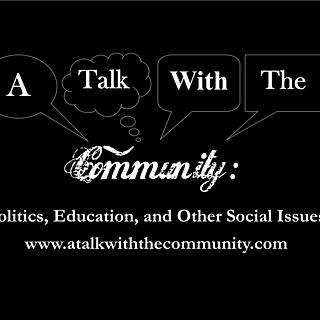An Agenda For Black Women And Politics
- Quintessa Hathaway Hervey
- Mar 19, 2020
- 3 min read
“If you hear the dogs, keep going. If you see the torches in the woods, keep going. If there's shouting after you, keep going. Don't ever stop. Keep going. If you want a taste of freedom, keep going.”
Harriett Tubman, Liberator And Heroine
"Countrymen, the task ahead is great indeed and heavy is the responsibility; and yet it is a noble and glorious challenge – a challenge which calls for the courage to dream, the courage to believe, the courage to dare, the courage to do, the courage to envision, the courage to fight, the courage to work, the courage to achieve – to achieve the highest excellencies and the fullest greatness of man. Dare we ask for more in life?"
Kwame Nkrumah, Independence Movement Leader And Revolutionary
We must thrust ourselves into the consciousness of the country and dramatize our grievances on a thousand brightly lighted stages (King, 1963). African American women began dramatizing grievances and lighting political stages in 1851 in Akron, Ohio, with Sojourner Truth’s stirring “Ain’t I A Women” speech and have not shuttered or shrank since.
I call our present time “The Second Civil Rights Movement.” We are fighting the same tenets as that of the first. We are beating back racism. We are tangling with tyrants and flirting with fascism. Domestic terrorism is resurging, and constitutional rights are under the greatest attack seen in the twenty-first century.
We are reminded that the most powerful cards a member of a citizenry can hold are for the library and voter registration. Both are keys to liberation and literacy is golden. Marcus Garvey tells us that a reading man and woman is a ready man and woman, but a writing man and woman is exact. Dr. W.E.B. DuBois tells us the power of the ballot box is our sheer defense to save us from a second slavery. In order to save ourselves, must are mandated to do the following:
Building a local, state, and national strategy to mobilize black women and dollars in order to harness our collective economic and voting power (Higher Heights, 2018)
Identify, educate, and engage black women across the socioeconomic spectrum to elect black women, influence elections and move public policy Higher Heights, 2018)
Fully implement and fund the Congressional Black Caucus’ “Marshall Plan For Black America”
Ratify a 21st century Equal Rights Amendment
State governments, local school boards, and college boards offer and enroll students in gender studies courses at the elementary, secondary, and collegiate levels
Increase protections of women in tribal, indigenous, and native government jurisdictions
Expand access and increase quality healthcare to incarcerated pregnant women, care for girls in juvenile facilities, and parental rights of incarcerated mothers (Rosenfeld, Mardirossian, Langston, Lawler, and Dunning, (2007).
Fully implement universal healthcare in this country which prioritizes preventative care, nutrition, childcare, addictions, and senior citizen services (Black Panther Party, 1970)
Methodically and intentionally close the gender, opportunity, wealth, and achievement gaps
Promote feminist philanthropy at the state and local levels
Fully enforce and fund laws on the books which are related to violence, equal protection, due process, employment protections, and healthcare
Craft and execute legislation to end female genital mutilation
Protect reproductive and sexual rights and access to contraceptives
Restrict abortions to twenty-four (24) weeks, except where it is detrimental to the mother
Grant new mothers and fathers a minimum of eight (8) weeks of paid leave from their employers
Eradicate trafficking of forced laborers and sexual slaves
Grant women of color one-third (1/3) of all local, state, and federal government contracts
State and federal legislation to “Bring The Man Back In The House,” which is a counter to the Aid To Families With Dependent Children (AFDC) policy, "No Man In The House" Rule
Elect and appoint more African American women to public service
Amplify African American female voices in all areas of political engagement
Investing in a strategy to expand and support the Black women’s leadership pipeline at all levels and strengthen their civic participation with ongoing efforts (Higher Heights, 2018)
Form a commission and conduct exploratory research on the historical, social, political, and economic role of black women and provide recommendations, facts, and circumstances for forward progress and community advancement.




























Comments